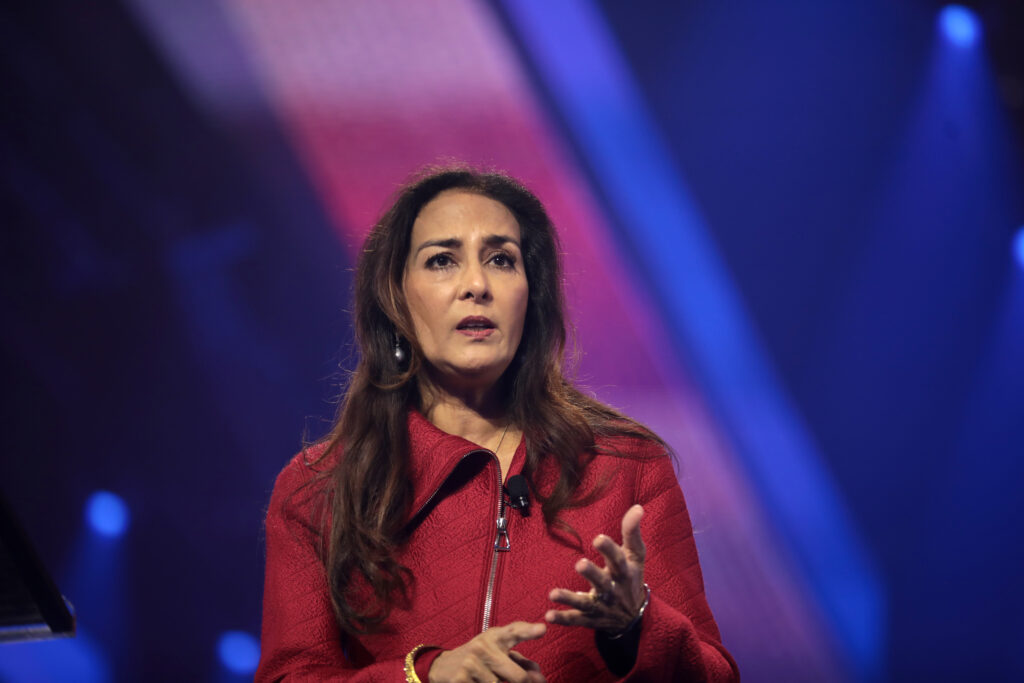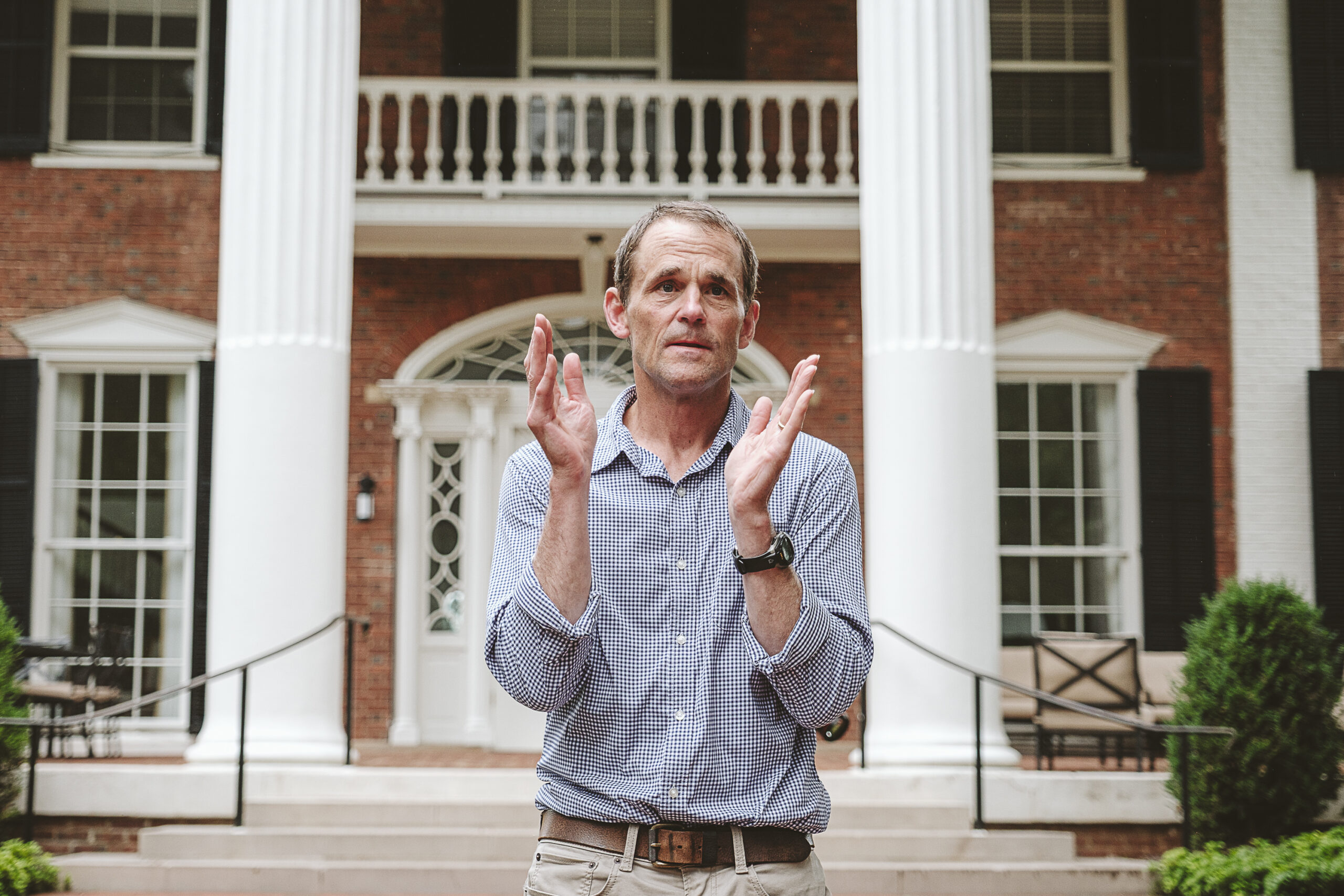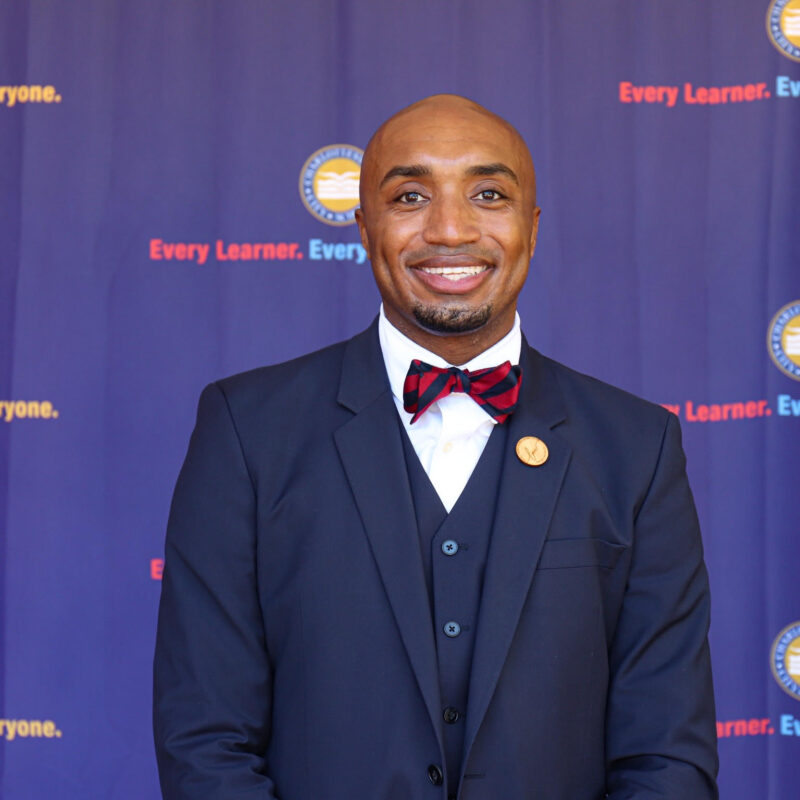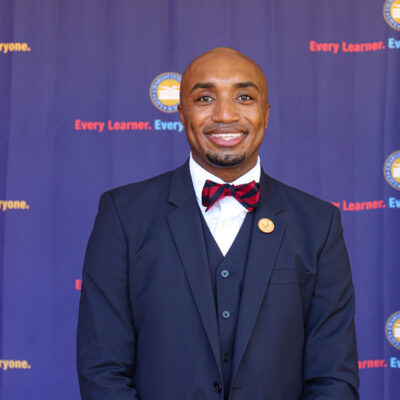Jim Ryan resigned as president of the University of Virginia on June 27, citing pressure from the federal government.
Before announcing his resignation to the UVA community, Ryan addressed a crowd of supporters gathered outside his Carr’s Hill home.
“You all are the people who make this place great and good, and it has been a total honor to be a part of this place. I love the University of Virginia deeply, and it’s because of all of you,” said Ryan. “Regardless of my role, I will continue to do whatever I can to support this place and continue to make it the best place it can be, and I would ask that you all do the same.”
Amid cheers of support, many called for Ryan to stay. A university-wide email confirming his resignation was released 10 minutes later.
Why resign?
Since coming to UVA in 2018, Ryan has promoted the importance of UVA and its community as being not only great, but good, with UVA’s 2030 plan subtitled “Great and Good.” Ryan’s departure letter echoed this sentiment.
“I am inclined to fight for what I believe in, and I believe deeply in this university. But I cannot make a unilateral decision to fight the federal government in order to save my own job,” he said. “To do so would not only be quixotic but appear selfish and self-centered to the hundreds of employees who would lose their jobs, the researchers who would lose their funding, and the hundreds of students who could lose financial aid or have their visas withheld.”
The United States Department of Justice reportedly called for Ryan’s removal in connection with the university’s diversity, equity, and inclusion policies, according to The New York Times. In line with multiple executive orders threatening federal funding, UVA leadership and the BOV announced the closure of the school’s Office of Diversity, Equity, Inclusion and Community Partnerships earlier this year.
Beyond the potential financial and legal difficulties presented by an adversarial relationship with the Trump administration, Ryan said he already planned to leave UVA at the end of the upcoming academic year.
“While there are very important principles at play here, I would at a very practical level be fighting to keep my job for one more year while knowingly and willingly sacrificing others in this community,” said Ryan. “If this were not so distinctly tied to me personally, I may have pursued a different path. But I could not in good conscience cause real and direct harm to my colleagues and our students in order to preserve my own position.”
Board of Visitors Rector Robert Hardie accepted Ryan’s resignation the same day. His last day will be “before August 15” according to the Times.
How we got here
On the campaign trail and in the White House, the elimination of diversity, equity, and inclusion programming has been a priority for the Trump administration, with higher education an area of focus. Trump has issued multiple executive orders affecting DEI.
The exact definition of—and criticism raised against—DEI is nebulous and ever-changing, even within the Trump administration.
At its base level, DEI can be summarized by the definitions of diversity, having variation and difference; equity, “the quality of being fair and impartial”; and inclusion, welcoming all—especially historically excluded groups.
The name has changed over time, but DEI has its recent roots in the 1960s civil rights movement and efforts to uplift historically underrepresented groups and address racism in the United States. Movements for racial equality gradually expanded over the late 20th century to include gender equality and LGBTQ+ rights. The first workplace positions for diversity emerged in the 1990s, with more formal trainings on topics including sexual harassment and unconscious bias following in the 2000s, according to Forbes.
Conversations related to diversity, equity, and inclusion have become more prominent at UVA since the university integrated in the ’60s, and began admitting women in 1970. UVA’s Office of Diversity and Equity was opened in the ’90s under president John Casteen III. Programming, including implicit bias training, was incorporated in the 2010s under president Teresa Sullivan.
Ryan previously served as dean of the Graduate School of Education at Harvard, where he was known for his support of that university’s diversity, equity, and inclusion efforts.
Prior to Trump’s 2025 inauguration, the website for UVA’s DEI office opened with the following statement: “The Division for Diversity, Equity, and Inclusion is deeply committed to enhancing the wellbeing, safety and success of all UVA faculty, students, staff, alumni, visitors and our neighbors. We achieve our mission through the coordinated and collective impact of the Office for Equal Opportunity and Civil Rights; the Office for Diversity, Equity, and Inclusion; and the Center for Community Partnerships.”
The office’s work included Ryan’s Racial Equity Task Force, which was formed in 2020, and long-term goals endorsed by the BOV the same year. Initiatives endorsed by the BOV included “having a student body that better reflects the racial and socioeconomic demographics” of Virginia, doubling the number of underrepresented faculty by 2030, and a review of “staff hiring, wages, retention, promotion and procurement” policies to ensure equity.
Following the Supreme Court ruling ending affirmative action in college admissions in 2023, UVA was the first Virginia university to release its admissions data. There was minimal change in the racial and gender breakdown of incoming students, with the most prominent being an increase in the proportion of Hispanic students from 7.2 percent for the class of 2027 to 9 percent in the class of 2028.
In a January 21 executive order, Trump criticized DEI policies as, “undermin[ing] our national unity, as they deny, discredit, and undermine the traditional American values of hard work, excellence, and individual achievement in favor of an unlawful, corrosive, and pernicious identity-based spoils system. Hardworking Americans who deserve a shot at the American Dream should not be stigmatized, demeaned, or shut out of opportunities because of their race or sex. … Yet in case after tragic case, the American people have witnessed first-hand the disastrous consequences of illegal, pernicious discrimination that has prioritized how people were born instead of what they were capable of doing.”
The university publicly ended its DEI programming following a March 7 BOV resolution, citing Trump executive orders, which threaten to cut federal funding for institutions that continue DEI programming. Since that announcement, UVA’s diversity office, and several adjacent offices, have been dissolved, with many programs reorganized under the Office of Community Partnerships.

Critical of DEI at UVA
For years, conservative alumni organizations like The Jefferson Council have called for not only the elimination of DEI initiatives at UVA, but also for Ryan’s removal.
With a stated goal of “leading the University of Virginia back to Thomas Jefferson’s legacy of freedom and excellence,” The Jefferson Council is critical of DEI programming, to the point of launching an entirely separate website for the reporting of DEI at UVA after the BOV resolution was issued, labeling it a threat to “intellectual rigor, free inquiry, and meritocracy.”
The group has also been critical of conversations reckoning with Jefferson’s legacy at UVA, namely the acknowledgment of Jefferson as a rapist who enslaved almost 700 people.
Specific instances named as “DEI” by The Jefferson Council include the continued existence of recognition ceremonies for LGBTQ and multicultural students graduating, despite it acknowledging that the events are open to “any student … regardless of identity.” The deiatuva.com post further takes umbrage with the Donning of the Kente Ceremony, organized by the Office of African American Affairs, calling it “another de facto segregated graduation ceremony.”
The Kente Ceremony is sponsored by the UVA Alumni Association, which is not university-run. It is meant to honor the resilience and accomplishments of African American students, but is open to all. It is believed to have started at West Chester University in 1993 as a way to acknowledge the unique challenges overcome by Black students.
Appointments by Gov. Glenn Youngkin, including now-fired Jefferson Council founder Bert Ellis, have created an increasingly conservative BOV. Youngkin himself applauded the March 7 resolution, celebrating with a statement where he proclaimed that DEI is “dead at UVA.”
Despite their early enthusiasm for the resolution, Youngkin, the BOV, and conservative alumni groups were critical of the execution of the DEI office’s dissolution, or from their perspective the lack thereof, by UVA leadership.
When murmurs of a DOJ investigation into UVA for “race-based treatment” emerged, DOJ officials reportedly told BOV members it would end its investigation if Ryan was removed as president, according to the Times.
The DOJ did not provide additional information on the “race-based treatment” at UVA referenced in the Times, but did respond to C-VILLE’s inquiry for comment on the general investigation and Ryan’s resignation.
“The United States Department of Justice has a zero-tolerance policy toward illegal discrimination in publicly-funded universities. We have made this clear in many ways to the nation’s most prominent institutions of higher education, including the University of Virginia,” says Assistant Attorney General for Civil Rights Harmeet Dhillon. “When university leaders lack commitment to ending illegal discrimination in hiring, admissions, and student benefits–they expose the institutions they lead to legal and financial peril. We welcome leadership changes in higher education that signal institutional commitment to our nation’s venerable federal civil rights laws.”
Dhillon graduated from UVA’s School of Law in 1993, one year after Ryan.

Resignation implications
Ryan’s resignation, and the DOJ pressure behind it, have sparked conversation spanning well beyond Grounds. From The New York Times to Axios to the White House, all eyes are—once again—on Charlottesville.
Virginia Sens. Tim Kaine and Mark Warner weighed in shortly after the Times reported Ryan’s resignation. “It is outrageous that officials in the Trump Department of Justice demanded the Commonwealth’s globally recognized university remove President Ryan—a strong leader who has served UVA honorably and moved the university forward—over ridiculous ‘culture war’ traps,” they said in a joint statement on June 27. “Decisions about UVA’s leadership belong solely to its Board of Visitors, in keeping with Virginia’s well-established and respected system of higher education governance. This is a mistake that hurts Virginia’s future.”
Republican lieutenant governor candidate John Reid celebrated Ryan’s departure on social media, writing, “Good. That’s what happens when you stick your middle finger up at the elected governor and the voters of Virginia and then play a game of chicken with the president of the United States on an issue that’s overtly reverse racist like DEI.”
Although Ryan cited his desire to protect the UVA community in his written announcement, many called on him to remain as president for the same reason.
“The current trend of everybody surrendering without putting up a fight has to stop, whether it’s the FBI director at the start of the Trump term, or whether it’s other universities with billions of dollars of endowment,” said one member of the Class of 2025 while demonstrating in support of Ryan outside Carr’s Hill minutes before Ryan formally resigned. “What’s the point of having billions of dollars of endowment and not being willing to put it to use for a couple of years if we have to make do?”
As of June 30, 2024, the University of Virginia Investment Management Company held $14.2 billion in long-term funds and $88.3 million in its short-term pool. Included in the long-term investments is the Rector and Visitors’ endowment—$7.2 billion.
Other students, alumni, and staff demonstrating in support of Ryan on June 27 were concerned about the precedent set by his resignation, and UVA’s future.
“For [Ryan] to abdicate his position at a time like this … that is just opening the way for people to erase any good that has been done in his tenure,” said Jennifer LaFleur, who works for the Office of Undergraduate Education at UVA. “The letter to the university reinforces my frustration that this is an abandonment of this community and of the principles that Jim Ryan claims to want to uphold. It is opening a door to we don’t even know what, at a time when the stakes are incredibly high. And I would have hoped that he would choose to lead instead of leave.”
Em Gunter, who also graduated from UVA in 2025, is “not the biggest fan of Jim Ryan,” but echoed concerns about his departure.
“Because of Jim Ryan, I had a long gun pointed in my face a year ago when the [pro-Palestine] encampment was broken up. So when I say I’m not a fan of Jim Ryan, I mean it. But I came here today to express the fact that this is wrong,” they said. “The authoritarian takeover of public education is wrong. … This is straight out of the authoritarians handbook, and Jim Ryan has completely abdicated his responsibility to more than 30,000 members of the university community who rely on him to make a semblance of a good decision.”
“We have been shown time and time again in the past six months when the president of Columbia University abdicated, when they put in a new person, who then got thrown out again, Columbia University has acquiesced time and time again, and they keep fucking losing,” Gunter continued. “People are going to continue to suffer no matter [if] you think you’re doing this nobly.”
Gunter and others highlighted the role of The Jefferson Council and Board of Visitors in Ryan’s resignation.
“I just want … Jim Ryan and the board to know that the Trump administration doesn’t care if you meet their demands,” said Reece Anderson, another 2025 grad. “The attacks will continue on higher education.”
What comes next?
In a June 30 email to the university community, outgoing Rector Robert Hardie and Rector-elect Rachel Sheridan thanked Ryan for his service to UVA.
“At this important time for higher education, UVA’s mission—to develop citizen leaders, advance knowledge through research, and provide world-class medical care—is more vital than ever,” they wrote. “Equally critical for our own communities, the Commonwealth of Virginia, the broader public, and our nation is to preserve the autonomy of higher education, which fuels the research and innovation happening on our Grounds.”
After Ryan’s last day, Jennifer “J.J.” Wagner Davis, the current executive vice president and chief operating officer at UVA, will assume the role of acting president. A search committee that will recommend a new president to the BOV will be formed, but what comes next is up in the air.
Featured image: Eze Amos






